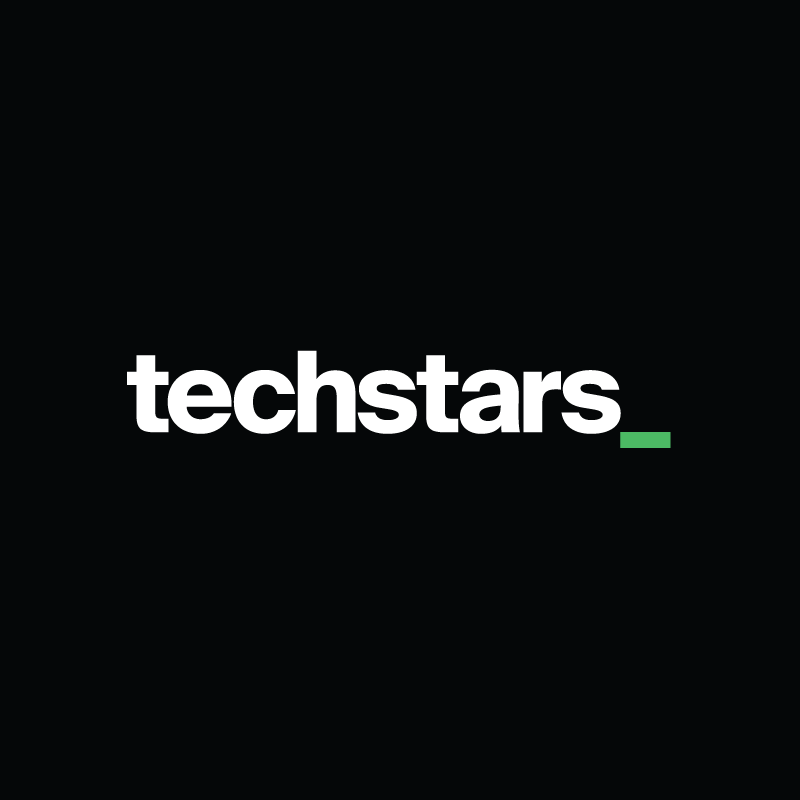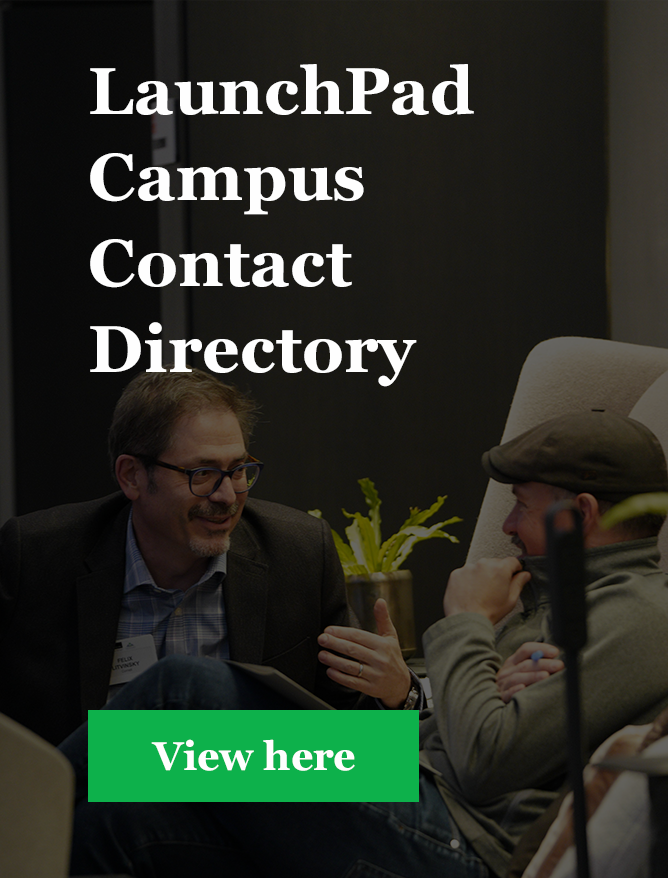Collaboration, particularly between individuals with different skill sets and expertise, is critical to student startup success. NYU, a member of the Blackstone LaunchPad powered by Techstars network, builds processes that match students from different academic backgrounds who might otherwise not meet into many of their programs.
NYU Entrepreneurial Institute (Leslie eLab) Associate Director Rebecca Silver and Senior Program Manager Emily Baum recently shared their efforts and experience around student matching.
“We take a few different approaches to this— from space to strategy—that help facilitate or at least make an intersection between students more likely,” said Rebecca. “The three most impactful initiatives are probably our ‘Create a Team’ Wall, our ‘Team Hunt’ event, and strategic programmatic decisions and requirements that reinforce this goal.”
‘Create a Team’ Wall
Located near the center of the Leslie eLab, visitors can’t miss the 10 x 6 ft. Create a Team  wall, divided into “Need It” and “Got It.” Any time the center is open, students can fill out a simple, branded post-it note describing either what skills and talent they need or what they can offer to existing teams. The post-its include names and email addresses, enabling other students to make connections independently. At any given time, there might be 10-20 post-its on each side of the board. Leslie eLab staff clears the board each semester, ensuring that when a potential student match occurs, both are more likely to be available and engaged.
wall, divided into “Need It” and “Got It.” Any time the center is open, students can fill out a simple, branded post-it note describing either what skills and talent they need or what they can offer to existing teams. The post-its include names and email addresses, enabling other students to make connections independently. At any given time, there might be 10-20 post-its on each side of the board. Leslie eLab staff clears the board each semester, ensuring that when a potential student match occurs, both are more likely to be available and engaged.
“When we meet teams to interview them for programs, we often hear that they were matched via the wall,” said Emily. “Sometimes it’s a little surprising, but we do find it works.”
‘Team Hunts’ and Other Events
NYU Entrepreneurial Institute team also hosts a ‘Team Hunt’ event twice per semester. With thousands of students on their email list and significant cross-campus promotion, Rebecca and Emily report that they often have 100 students RSVP and around 50-75 who end up attending. Participants begin by taking a color-coded name tag that represents their general domain of expertise. At some events, students can choose only one color, while at other events, students have the opportunity to select multiple. Another important option is choosing an “other” colored name tag.
“The popularity of the ‘other’ name sticker being so popular was really insightful to me,” said Emily. “People want to have a conversation starter, and they don’t always feel like they fit into a box or label.”
As the event begins, students must introduce themselves and learn something about students with different colored badges. Organizers may offer prepared questions designed to get the conversation started. Other times the conversation flows more naturally, and people get engaged more organically. Rebecca, Emily, and other staff members also float around the room, introducing students to each other and ensuring no one is left isolated or without interaction. After the initial networking component, those with a specific startup idea are invited to pitch their ideas for 30-60 seconds to the group and then describe the help they are looking for.
In addition to this student matching-focused event, students often meet and begin working together by participating in other NYU Entrepreneurial Institute early-stage events and programs, like ‘Bootcamps,’ ‘Brilliant Business Ideas Brainstorm,’ or ‘Idea Jams.’ Though students who come to these events together sometimes disband, often the most motivated individuals will get involved with another participating student or team.
Programmatic Reinforcement
Beyond the board and events that bring students together, the NYU Entrepreneurial Institute has made strategic programmatic decisions that bolster a team-driven end result. For example, the name ‘Team Hunt’ was very explicitly chosen (rather than ‘Cofounder Hunt’), leaving out any presumption about eventual team roles or relationship duration. Some students attend these events to find temporary help, and others attend to find something more permanent. And, of course, roles and relationships evolve over time—often in unexpected directions.
Another strategic decision is that in all later-stage, more in-depth accelerator-like programs at the NYU Entrepreneurial Institute, startups must have a minimum of two participants. In addition, Rebecca and the Leslie eLab team clearly and repeatedly communicate to students that they prioritize diversity (both demographic and academic) in all programmatic selection.
Finally, the strategic location of the NYU Leslie eLab space plays a part.
“Foundationally, we’re not affiliated with any one college, which means we’ve become a bit of a common space where students expect to meet others from different schools.”
Lessons Learned
Rebecca and Emily have countless examples of unexpected student matches. One recent Startup Sprint team was made up of a graduate-level researcher and a liberal studies freshman. During their most recent Summer Accelerator, one team included a computer science Ph.D. student with a background in insurance tech and a business school student who got together after randomly sitting together at a Team Hunt.
Throughout all of these experiences, the NYU Leslie eLab team has recognized a few commonalities:
- Students, just like working professionals, need to be respected and listened to. When students become too enamored with their ideas, they sometimes “hold court,” basically asking other students to audition. Rebecca and Emily encourage their students to approach finding a team member with humility, patience, and an open mind.
- Not all relationships last — and that’s ok. Sometimes a personal ability or technical skill is a permanent match, but sometimes it’s only a temporary fit. Even a partnership that doesn’t work out can provide useful lessons around both human relationships and business-building. You’re never going to achieve 100% match success, and there are some partnerships that just won’t succeed—don’t go overboard trying to make a mismatch work.
- Whether through programs, matching boards, or strategic decision-making, Rebecca and Emily recognize that opportunities for connection can be created, and matching should be encouraged. However, ultimately relationships will still unfold organically.






